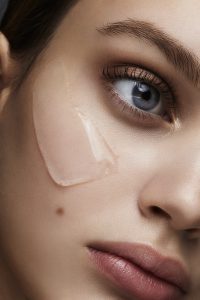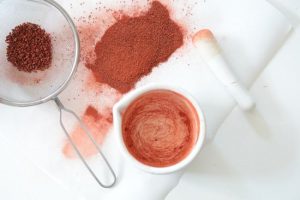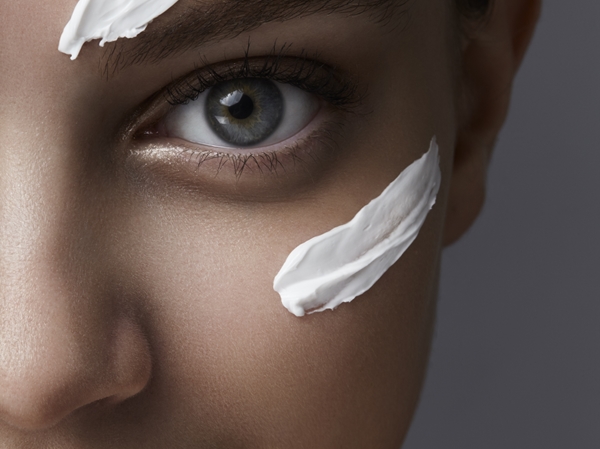
What’s going to fit you better – something that’s mass produced for a market of millions, or a product that’s tailor-made to all of your eccentricities? Rhetorical questions aside, one size definitely does not fit all, and the beauty industry has realised that 12 foundation shades and four skin types won’t suit every customer that walks through the salon doors.
We’re in the midst of a digital revolution, with extreme connectivity and awareness creating a new breed of customer that’s more disconcerting about what goes into their beauty cabinet. Not only that, but diversity is being championed stronger and more frequently as the years go by, while the idea of having something made just for you is equal parts luxurious, exclusive and empowering.
Judging by personalisation’s long history – fashion, food, phones – it’s likely this now beauty-focused trend is here to stay. By leveraging this new style of tailoring, entrepreneurs, brands and retailers can craft authentic relationships that meet the consumer wherever they please.
The last few years have seen a myriad of brands that focus solely only individualism emerge, with IPCS (Institute of Personal Care Science) predicting a rise in consumers purchasing product ranges that have a customisable base and optional active ingredients.
“Make sure your base addresses key concerns in general such as anti-pollution but provide active concentrates with easy dispensing units and clear instructions for true customisation and a happy consumer,” states their 2017 Key Formulation Trends report.
“Consumers want a product to suit them, matching their lifestyle, their skin, their tone, their look.”
Spanish brand MyCODE was one of the first labels to offer consumers truly unique products, with the cosmeceutical collection creating an individualised skin treatment to meet the specific needs of each client.
Comprising of six facial concentrates, MyCODE allows therapists to ‘prescribe’ an alchemy approach to skincare, mixing and matching formulas to create the perfect fit.
“As a skin care professional, it is important to treat the specific concerns of the client as each and every individual presents with what they consider requires attention,” says MyCODE managing director Mandy Thurgar.
“Having a brand that allows us as therapists to customise and personalise not only the clinic treatment, but the take home experience, means that the needs of the client are embraced and preserved on every possible level.”

The ability to create a unique product versus pacing around the beauty section has inspired this new generation of startups to reimagine how we purchase everything from cleansers to foundations.
Melissa Carter of personalised makeup brand Melli Cosmetics believes online shopping and the globalisation of beauty retailers are behind the inspiration for her company, with the Australian entrepreneur dedicated to standing out in a market saturated for choice.
“Women are more informed and have a plethora of choice but are still seeking more,” she tells Professional Beauty. “This is where customisation comes in.”
“It’s imperative to really and truly listen to the client when it comes to a custom made product. Communication and a thorough consultation is the key.”
“We have always said this is not just a service but an experience. We love that the client walks away feeling special. We have listened, we have connected and they leave with their bottle of foundation that wasn’t just purchased off a shelf but ‘ formulated with love ‘ just for them.”
The concept of the ‘experience’ is a core pillar of this made-to-order movement, and while time, care and attention on the industry professionals part are essential, consumers are getting a surprising kick out of the process – empowerment.
Fast Company journalist Rine Raphel recently recounted her experience with cosmetics company Finding Ferdinand, a New York-based startup that produces custom-made lipstick shades.
“I selected a good chunk of fuchsia, a bit of cranberry, with just a hint of mauve. And behold, I gave life to a new shade of lipstick! I am an original. A creator,” she wrote.
“It might be just a beauty product, but I felt powerful, like I owned that cosmetic.”

Giving consumers the ability to steer their own ship rather than providing them with a big brand’s ‘my way or the highway’ outlook is another enticing element this trend. If given the choice, only one in a million clients wouldn’t revel in, and, more importantly, appreciate complete control over what they’re receiving.
“Men and women can customise their skincare online by selecting their age, skin tone and type, favourite texture, size, skin concerns and even top-up their product with an uplifting mood boost,” says CEO Dr. Maria Salichou of insitU skincare.
“Consumers are frustrated by the lack of skincare products that really meet their needs in their increasingly dynamic lifestyles. Men and women are demanding more from their products as part of the “right-for-me” trend.”
“Customers enjoy the multi-sensorial experience and have complete control of their skincare for the first time by customising their very own products online in a few simple steps from anywhere they are.”
Providing your customer with the ability to create their own path, achieve personal results and enjoy the professionalism and attention that comes with formulating something just for them will soon, if it hasn’t already, impact their purchasing choices.
“Beauty should not be ‘pick-and-pay’- it’s about the experience of a skin care professional and the client taking the time to have a conversation and consultation, to provide a solution – specifically, individually, customised,” says Thurgar.
“Having a therapist that you can trust will allow you to be confident and comfortable in all future treatments and recommendations, this can only be achieved through a truly personalised skin care system.”
Related
One thought on “How personalisation is reshaping the beauty industry”
Leave a Reply
You must be logged in to post a comment.


Interesting article Alison! When it comes to more “mainstream” online beauty sales many players still lack the real personalisation aspects beyond just recommending products that other people bought. You trust the in-store beauty consultant but online not many players have brought similar customer experience online. The other far-end are these players in your article providing “extreme” personalisation but there’s quite a lot of improvement still for the mainstream personalisation as well.
Just wrote a small article on the subject. One step towards real personalization:
https://www.linkedin.com/pulse/ecommerce-digital-beauty-advisor-miikka-m%C3%A4ki%C3%B6